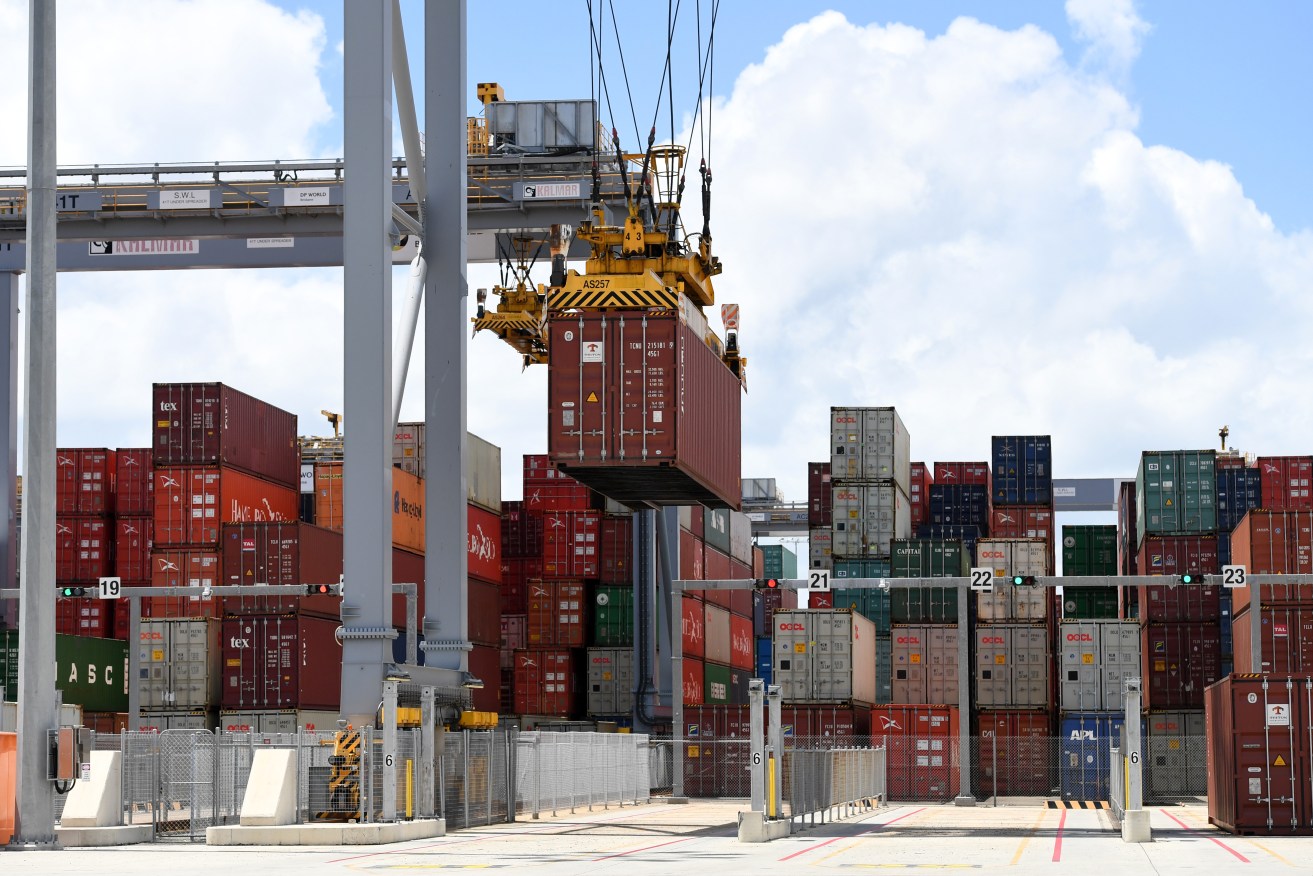‘Turbulent times’: Supply chains struggling as local and global disruptions build


Experts say Australians should get used to disrupted supply chains. Photo: AAP
The global supply chains that deliver Australians goods from around the world are suffering through “turbulent times” that raise the risk of higher consumer prices and shortages, experts warn.
Curtin University associate professor Elizabeth Jackson says everything from renewed conflict in the Middle East to cyber attacks, high inflation and industrial disputes are combining to disrupt the “seamless flow” of goods that Australians have come to expect from businesses.
Shipping is becoming more expensive and is taking longer amid the cacophony of severe disruptions, Jackson warned, arguing even luxuries like next-day delivery may be affected.
“These are very turbulent times in national and global supply chains,” Jackson said.
“The frequency and magnitude of these disruptions will likely see us experiencing more [product] shortages.”
Two inflection points have reared their head most recently; including global unease about attacks on shipping vessels in the Red Sea amid Israel’s war in Gaza; and more locally an industrial dispute between port operator DP World and the Maritime Union of Australia (MUA).
Jackson said that combined with the increased frequency of severe weather disruptions due to climate change and a huge wave of inflation post-pandemic, our supply chains are struggling.
Part of the problem is that the networks that handle the flow of goods around the world have for decades worked to remove excess costs, which makes products cheaper but carries big risks.
“It’s a very difficult environment,” Jackson said.
“This mantra of cutting costs all the time has been to the detriment of supply chains to be able to bounce back from these events.”
Uncertainty rules as supply chains struggle
University of Technology Sydney associate professor Sanjoy Paul said the major issue facing local supply chains is the DP World industrial dispute, which has been ongoing since last year.
He said the risk that Australians will be affected by the dispute rises the longer it continues, with affected ports responsible primarily for consumer goods contained within shipping containers.
“If work stoppages continue for a long time it is most likely that retailers and other sectors will be impacted,” he said.
“The most alarming thing is DP World has proposed increasing terminal access fees by up to 50 per cent from February 1 … ultimately that extra shopping cost will pass onto consumers.”
Workers at major ports in Sydney, Melbourne, Perth and Brisbane are undertaking stoppages and bans on overtime as they fight for pay increases to help cope with the cost-of-living crisis.
Workers have not received a pay increase since a 2.5 per cent bump back in 2022, meaning they have been hammered by soaring inflation that has seen their purchasing power go backwards.
Unions argue DP World’s competitors have passed on cost-of-living wage increases during that time, while the company continues to post solid profit margins since COVID-19.
That much has been exposed by the competition watchdog, which has analysed profits at major port operators in Australia and identified a sizeable increase in capital returns in recent years.
Unions and the Dubai-headquartered company have yet to come to terms on a new agreement, though negotiations are understood to be ongoing and both parties are in a media blackout.
Jackson said Australians should not overreact to the industrial action, noting that while DP World is a major port operator there is still about 60 per cent of the market not covered by the action.
In other words, the majority of goods continue to flow, while the maritime union has also exempted perishable goods and medical supplies from the work stoppages its undertaking.
Jackson warned, however, that the longer the dispute persists the greater the risk to consumers.
“The DP World situation combined with the other disruptions I’ve talked about is making it very uncertain times,” Jackson said.
“The extended nature of the negotiations is adding to the uncertainty.”








